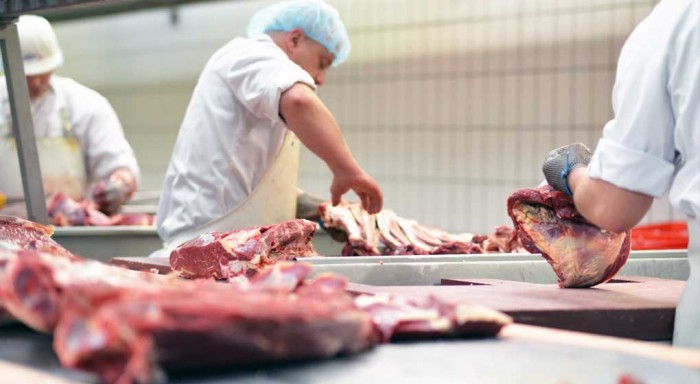Defra has extended two elements of its pig sector support package, amid warnings from the NPA that much more needs to be done to save the pig industry, as the crisis worsens.
The package, which included 800 temporary butchers’ visas, a private storage aid (PSA) scheme and a slaughter incentive payment scheme (SIPS), was announced in October. In reality, it has made little difference so far.
The NPA understands from processors that only just over 100 butchers have come in so far under the temporary visa scheme, while there has been minimal uptake of both the PSA and SIP schemes.
Defra has now extended the PSA, which was due to end on February 2, until March 31. The rules and provisions around product eligibility, rates and storage periods remain unchanged.
It has also announced the opening of a revised ‘SIPS 2022’ that aims to incentivise processors to maximise the use of additional butchers from January by putting on more shifts than has been possible at the end of 2021.
The payment rate will be increased under the new version of the scheme to £10 a pig and more flexibility has been given to the permitted cuts of meat that can be produced to include boned out joints. It is anticipated that the scheme, which is limited to 100,000 pigs on a first come first served basis, will also close on March 31. The original SIPS closed on December 20.
Defra said it ‘remains very aware of the challenges that the pig industry continues to face and continues to work closely with pig producers and the processing sector to understand how they can support them through this challenging time’.
Defra expects the processors to be keener to use PSA in this period after Christmas, when demand for pork traditionally drops off and as more butchers arrive. Meanwhile it is also hoped that processors will use the slaughter incentive.
Not delivering
NPA chief executive Zoe Davies said: “So far, Defra’s support package, while well-intentioned, has not delivered at all on its primary aim of reducing the pig backlog.
“In fact, the problem is getting worse, the backlog is growing, and contingency plans on farm are being exhausted. We are seeing more and more producers having to resort to the horrific step of culling and destroying pigs just to make space.”
The pig backlog has continued to grow, particularly as extra days were lost over the festive period – and is now estimated to stand in the region of 140,000. The situation has recently been compounded by Covid-related absences in pork plants, putting further pressure on throughputs.
The NPA is aware of 35,000 pigs that have been culled so far, but this is likely to be an under-estimate as those are just the ones that have been reported.
The NPA however is not convinced that this extension will help in any meaningful way and is continuing to call on Defra Secretary George Eustice to convene a roundtable event bringing together all interested parties in the supply chain to discuss constructive and effective ways to get more pigs through the system.
“We need to see more urgency and greater commitment across the supply chain in addressing this industry-wide crisis, and we need to see more support from Defra in ensuring these measures deliver on what they are actually intended to do,” Dr Davies said.
“If processors took what they were contracted to take at least this would start to alleviate some of the pressure. With producers also suffering a dire financial situation, underpinned by record feed costs and falling prices, and exacerbated by having to feed heavier pigs on farm for longer, there is only so much they can take.
“If we don’t see an improvement, we will lose more and more of our production and there will not be enough British pork to satisfy what remains very healthy domestic demand.”




